第37章 LAST EXPLOITS OF BECKER(7)
There falls one more incident to be narrated,and then I can close with this ungracious chapter.I have mentioned the name of the new English consul.It is already familiar to English readers;for the gentleman who was fated to undergo some strange experiences in Apia was the same de Coetlogon who covered Hicks's flank at the time of the disaster in the desert,and bade farewell to Gordon in Khartoum before the investment.The colonel was abrupt and testy;Mrs.de Coetlogon was too exclusive for society like that of Apia;but whatever their superficial disabilities,it is strange they should have left,in such an odour of unpopularity,a place where they set so shining an example of the sterling virtues.The colonel was perhaps no diplomatist;he was certainly no lawyer;but he discharged the duties of his office with the constancy and courage of an old soldier,and these were found sufficient.He and his wife had no ambition to be the leaders of society;the consulate was in their time no house of feasting;but they made of it that house of mourning to which the preacher tells us it is better we should go.At an early date after the battle of Matautu,it was opened as a hospital for the wounded.The English and Americans subscribed what was required for its support.Pelly of the LIZARDstrained every nerve to help,and set up tents on the lawn to be a shelter for the patients.The doctors of the English and American ships,and in particular Dr.Oakley of the LIZARD,showed themselves indefatigable.But it was on the de Coetlogons that the distress fell.For nearly half a year,their lawn,their verandah,sometimes their rooms,were cumbered with the sick and dying,their ears were filled with the complaints of suffering humanity,their time was too short for the multiplicity of pitiful duties.In Mrs.
de Coetlogon,and her helper,Miss Taylor,the merit of this endurance was perhaps to be looked for;in a man of the colonel's temper,himself painfully suffering,it was viewed with more surprise,if with no more admiration.Doubtless all had their reward in a sense of duty done;doubtless,also,as the days passed,in the spectacle of many traits of gratitude and patience,and in the success that waited on their efforts.Out of a hundred cases treated,only five died.They were all well-behaved,though full of childish wiles.One old gentleman,a high chief,was seized with alarming symptoms of belly-ache whenever Mrs.de Coetlogon went her rounds at night:he was after brandy.Others were insatiable for morphine or opium.A chief woman had her foot amputated under chloroform."Let me see my foot!Why does it not hurt?"she cried."It hurt so badly before I went to sleep."Siteoni,whose name has been already mentioned,had his shoulder-blade excised,lay the longest of any,perhaps behaved the worst,and was on all these grounds the favourite.At times he was furiously irritable,and would rail upon his family and rise in bed until he swooned with pain.Once on the balcony he was thought to be dying,his family keeping round his mat,his father exhorting him to be prepared,when Mrs.de Coetlogon brought him round again with brandy and smelling-salts.After discharge,he returned upon a visit of gratitude;and it was observed,that instead of coming straight to the door,he went and stood long under his umbrella on that spot of ground where his mat had been stretched and he had endured pain so many months.Similar visits were the rule,Ibelieve without exception;and the grateful patients loaded Mrs.de Coetlogon with gifts which (had that been possible in Polynesia)she would willingly have declined,for they were often of value to the givers.
The tissue of my story is one of rapacity,intrigue,and the triumphs of temper;the hospital at the consulate stands out almost alone as an episode of human beauty,and I dwell on it with satisfaction.But it was not regarded at the time with universal favour;and even to-day its institution is thought by many to have been impolitic.It was opened,it stood open,for the wounded of either party.As a matter of fact it was never used but by the Mataafas,and the Tamaseses were cared for exclusively by German doctors.In the progressive decivilisation of the town,these duties of humanity became thus a ground of quarrel.When the Mataafa hurt were first brought together after the battle of Matautu,and some more or less amateur surgeons were dressing wounds on a green by the wayside,one from the German consulate went by in the road."Why don't you let the dogs die?"he asked.
"Go to hell,"was the rejoinder.Such were the amenities of Apia.
But Becker reserved for himself the extreme expression of this spirit.On November 7th hostilities began again between the Samoan armies,and an inconclusive skirmish sent a fresh crop of wounded to the de Coetlogons.Next door to the consulate,some native houses and a chapel (now ruinous)stood on a green.Chapel and houses were certainly Samoan,but the ground was under a land-claim of the German firm;and de Coetlogon wrote to Becker requesting permission (in case it should prove necessary)to use these structures for his wounded.Before an answer came,the hospital was startled by the appearance of a case of gangrene,and the patient was hastily removed into the chapel.A rebel laid on German ground -here was an atrocity!The day before his own relief,November 11th,Becker ordered the man's instant removal.
By his aggressive carriage and singular mixture of violence and cunning,he had already largely brought about the fall of Brandeis,and forced into an attitude of hostility the whole non-German population of the islands.Now,in his last hour of office,by this wanton buffet to his English colleague,he prepared a continuance of evil days for his successor.If the object of diplomacy be the organisation of failure in the midst of hate,he was a great diplomatist.And amongst a certain party on the beach he is still named as the ideal consul.